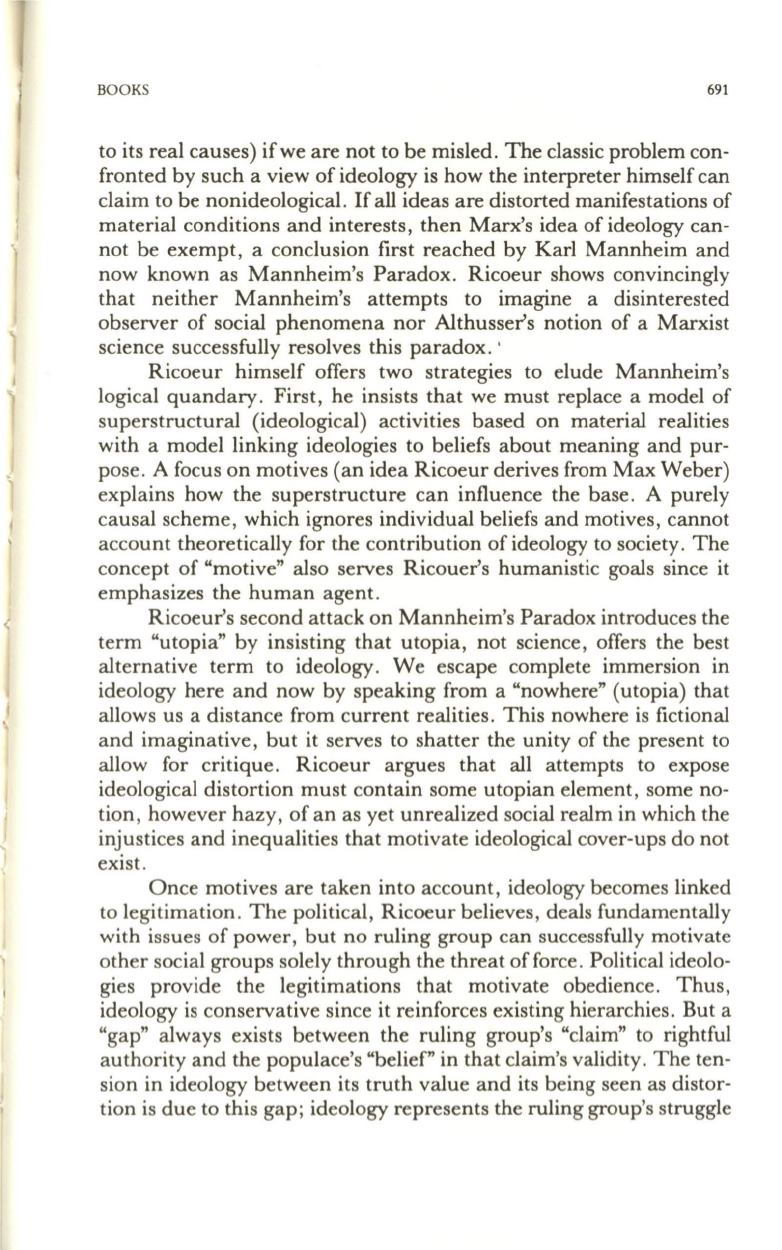
BOOKS
691
to its real causes) if we are not to be misled. The classic problem con–
fronted by such a view of ideology is how the interpreter himself can
claim to be nonideological.
If
all ideas are distorted manifestations of
material conditions and interests, then Marx's idea of ideology can–
not be exempt, a conclusion first reached by Karl Mannheim and
now known as Mannheim's Paradox. Ricoeur shows convincingly
that neither Mannheim's attempts to imagine a disinterested
observer of social phenomena nor Althusser's notion of a Marxist
science successfully resolves this paradox . .
Ricoeur himself offers two strategies to elude Mannheim's
logical quandary. First, he insists that we must replace a model of
superstructural (ideological) activities based on material realities
with a model linking ideologies to beliefs about meaning and pur–
pose . A focus on motives (an idea Ricoeur derives from Max Weber)
explains how the superstructure can influence the base. A purely
causal scheme, which ignores individual beliefs and motives, cannot
account theoretically for the contribution of ideology to society . The
concept of "motive" also serves Ricouer's humanistic goals since it
emphasizes the human agent.
Ricoeur's second attack on Mannheim's Paradox introduces the
term "utopia" by insisting that utopia, not science, offers the best
alternative term to ideology. We escape complete immersion in
ideology here and now by speaking from a "nowhere" (utopia) that
allows us a distance from current realities. This nowhere is fictional
and imaginative, but it serves to shatter the unity of the present to
allow for critique. Ricoeur argues that all attempts to expose
ideological distortion must contain some utopian element, some no–
tion, however hazy, of an as yet unrealized social realm in which the
injustices and inequalities that motivate ideological cover-ups do not
exist.
Once motives are taken into account, ideology becomes linked
to legitimation. The political, Ricoeur believes, deals fundamentally
with issues of power, but no ruling group can successfully motivate
other social groups solely through the threat offorce. Political ideolo–
gies provide the legitimations that motivate obedience. Thus ,
ideology is conservative since it reinforces existing hierarchies. But a
"gap" always exists between the ruling group's "claim" to rightful
authority and the populace's "belief" in that claim's validity. The ten–
sion in ideology between its truth value and its being seen as distor–
tion is due to this gap ; ideology represents the ruling group's struggle


